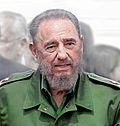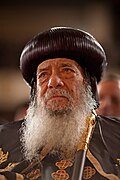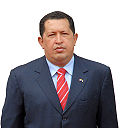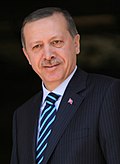| Al-Gaddafi International Prize for Human Rights | |
|---|---|
 | |
| Awarded for | International personalities, bodies or organizations that have distinctively contributed to rendering an outstanding human service and has achieved great actions in defending Human rights, protecting the causes of freedom and supporting peace everywhere in the world. |
| Country | Libya |
| Presented by | International People's Committee for Gaddafi's International Prize for Human Rights |
| First award | 1989 |
| Final award | 2010 |
The Al-Gaddafi International Prize for Human Rights was an annual human rights prize founded by the Libyan People's Congress in late 1988, in "indebtedness and gratitude for Muammar Gaddafi and in appreciation for his role in firmly establishing the principle of direct democracy, his persistent struggle, his distinctive inspiration and continuous instigation for the consolidation of human liberty and for issuing the Great Green Document in the era of the masses, for the purpose of bestowing tribute upon symbolic figures of struggle and faith in the values of freedom to all humans, nations, groups and individuals". [1]
Contents
Gaddafi made an initial grant of ten million US$ [2] to the Swiss-based foundation North-South XXI which later administered the prize donation. The sum of the prize money was US $250,000 (in case of several recipients the prize money was shared). The prize was given by an international committee, chaired by former President of Algeria Ahmed Ben Bella. [3] [4] Gaddafi himself had no say in choosing the recipient. [2]
The prize was discontinued in 2011, after Gaddafi's overthrow and death during the Libyan Civil War.
Criticism of the organization includes Swiss TV's report claiming that "the Gaddafi prize for Human Rights is an instrument for propaganda for the dictator", [5] while other groups have said that it promoted "anti-American and anti-Western hatred". [6]











